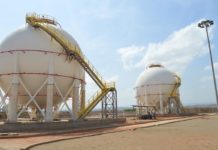The case of Eritrea shows that totalitarian systems are inherently toxic, and that no amount of “engagement” will change them.
By Steve Walker
There was only one surprise in the vote tally for a United Nations General Assembly resolution in March condemning Russia’s unprovoked invasion of Ukraine. As a wholly owned Vladimir Putin subsidiary, Belarus naturally followed instructions from headquarters; Syria’s “no” vote was repayment to the capo dei capi in Moscow for his regime-saving military support; and of course North Korea voted no. But Eritrea? Why would a little country in the Horn of Africa with no significant ties or obligations to Russia choose, at such a highly charged geopolitical moment, to give the finger to established norms of international behavior, in the process incurring irreversible reputational damage while seemingly gaining nothing?
The case of Eritrea is worth considering because, like Russia’s invasion of Ukraine, it reminds us of a lesson the West should not forget as it navigates“post-truth” geopolitics: that totalitarian systems are inherently toxic and by their very nature destabilizing, and that no amount of “engagement” will change them.
I, like all first-time visitors to Eritrea’s capital, was charmed by Asmara when I arrived as the new chief of mission at the U.S. embassy in 2019. The streets are immaculate; thanks to its Art Deco architecture, a living legacy of the Italian colonial period, the city is a UNESCO World Heritage Site; the weather is perfect.
But in truth Eritrea is a human-rights house of horrors. Dissent is illegal. There is no independent press. Under compulsory, indefinite national service, citizens are conscripted or assigned to civilian jobs. The country has never held a national election. Eritreans live in a state of perpetual fear: Secret police and informers proliferate; arrests are arbitrary; citizens are routinely detained but not told on what charge, and the lucky ones who are released are given no reason for their freedom and are told to keep silent. Thanks to “revolutionary” economic policies, Eritrea is poor, has no infrastructure to speak of and thus no realistic hope for economic development, and is chronically food insecure. Before the coronavirus pandemic and the conflict in northern Ethiopia made cross-border travel impossible, hundreds of Eritreans fled their country every day.







